This week, TechNova is featuring me and the (tech) contents of my bag in a blog post.
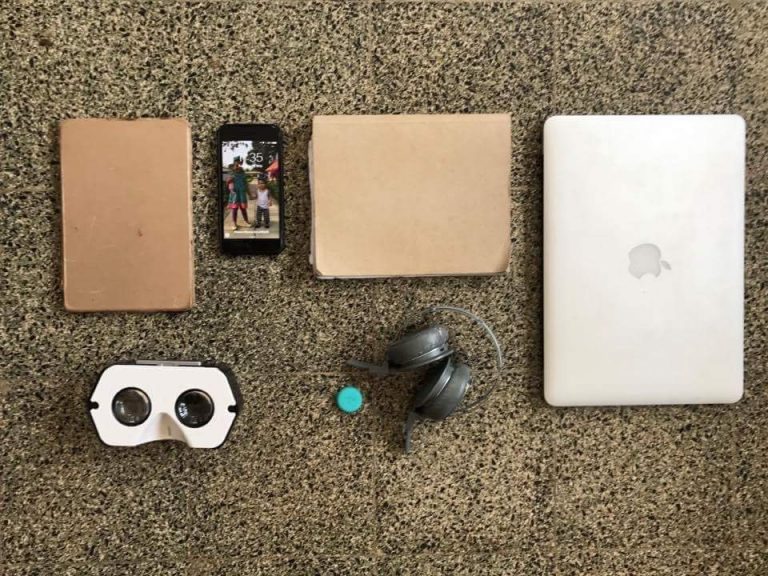
Do you know what the brown rectangles are? The mint-green dot? The goggles?
This week, TechNova is featuring me and the (tech) contents of my bag in a blog post.

Do you know what the brown rectangles are? The mint-green dot? The goggles?
So I have quietly been working on some interesting blog related projects, I will tell you more soon. I’ll start by outdooring my media kit.
I got the idea from Swedish blogs which often have them and when the Influencers of Sweden wrote about how to make your own, see for instance this post with three examples of media kits in English, I came up with this doc that you can download from my Contact-page. See a first version below:
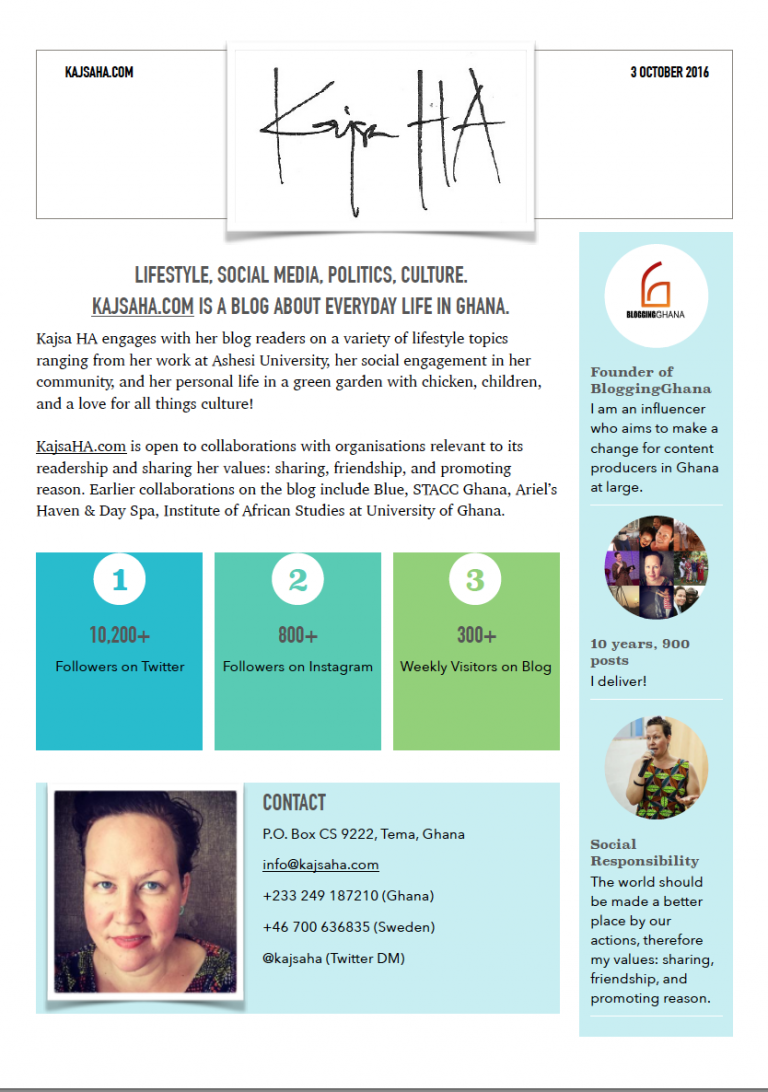
The idea is that potential collaborators and media people will be able to get a summary of what the blog is about and how influential it is (measured in followers, visits, etc).
Does my media kit summarise my blog? If you are a blogger, will you make one?
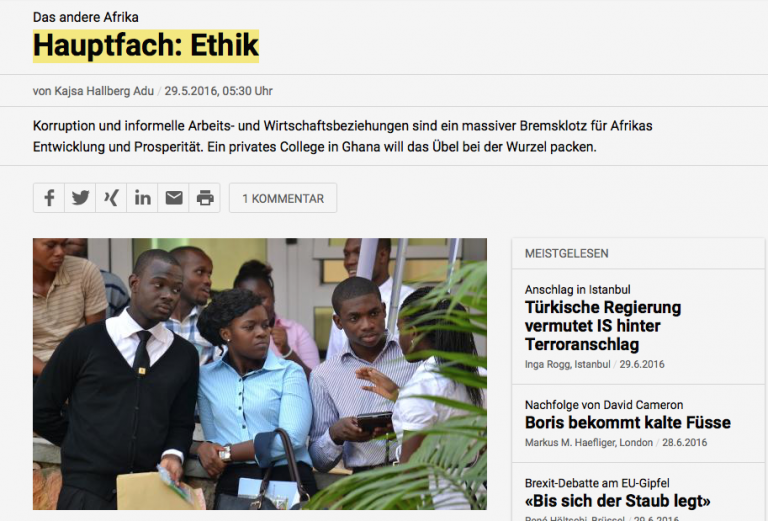
Earlier in the spring, I was asked to write about Ashesi University for a Swiss newspaper, NZZ. Under the theme “The Other Africa”, I wrote about teaching ethics in Ghana illustrated by my own experiences and that of students and an alumn.
My Ashesi article under the headline “Hauptfach: Ethik von Kajsa Hallberg Adu” was recently published in the newspaper in a special issue on Africa in the excellent company of write-ups by Ghanaian-Afropolitan novelist Taiye Selasi, correspondent extraordinaire Alex Perry, and an article on smartphones in Africa by literary scholar Mohomodou Houssouba.
Find an English version of my article below:
Major: Ethics
(my original heading was “The Rough Road to Educating Ethical Leaders in Africa” alas…)
On the red, dusty road an hour from Ghana’s bustling capital of Accra, children play and goats scoff around for something to eat. I drive through the village; expertly avoiding the potholes, pass the police barrier, the water well, and the primary school before I make a sharp turn to climb the lush, green hill. Up there, I wave a greeting to the woman selling pineapples before I pull into the 100-acre well-manicured campus. I teach at a non-religious, private liberal arts college called Ashesi University College, located in the town of Berekuso in Ghana’s Eastern region. I work in an institution that has the, perhaps lofty, mission of educating a new generation of ethical and entrepreneurial leaders in Africa.
Ashesi, as it is called for short, means “beginning” in local language Twi and is known for pushing the bar of private higher education in Africa, especially in terms of ethics and liberal arts. Perhaps others might also know of Ashesi as its founder and president is a very hands-on and influential leader. Dr. Patrick Awuah has been on the management listings of the world like Forbes 2015 World’s 50 Best Leaders, Fast Company where he was listed as number 87 of 100 Most Creative in Business 2010, and last year Dr. Awuah received the MacArthur “Genius Grant”. He can often be seen in the campus cafeteria having lunch with students and colleagues. In my view, Ashesi ought to be more known for is its recent pledge to run an engineering program for 50/50 men and women, something many top universities across the globe have not been able to do.
Since I was first introduced to the liberal arts institution in a 2007 TED video with Dr. Awuah and subsequently started to work there in 2009, much has happened in terms of growth and reach, but the focus on ethics, entrepreneurship, and leadership remains. The university college has doubled in size to 600 students of which 47% are women, 53% men. Ashesi has grown to have four undergraduate programs: engineering, business administration, management information systems, and computer science. While a majority of students come from Ghana, the institution aims to be pan-African with 21% of students from outside the country. The decision to make admissions gender-balanced was a pioneering move that impacts daily life at the university and underlines that women and men have an equal role to play in problem solving on all levels.
Africa is still the continent with the lowest level of university enrollment, at about 6% of the population compared to a 26% world average, according to UNESCO. What this means is that extremely few Africans ever get a chance to go to university. And those who do are destined to become leaders in society. With this analysis Ashesi University College has aimed to bring scholarships to deserving students, quality education to those who can afford, and making sure the future leaders of the continent are both ethical and entrepreneurial. But educating ethical leaders in a corrupt environment marred with inequality is a challenge. Ghana and its neighbors repeatedly scores high in corruption listings such as Afrobarometer or Transparency International’s Corruption Perception Index and a recent particularly shocking corruption scandal exposed judges in Ghana’s legal system accepting cash bribes to skew verdicts. Related is the hierarchal structure of the society that will make many visitors raise an eyebrow at Dr. Awuah’s presence in the cafeteria queue. At other Ghanaian universities, the leadership would go to lunch in separate senior clubs with air conditioning, service at the table, and not feeling they missed out at all from not talking to students.
In this context, it makes sense that Ashesi’s approach to teaching ethics is hydra headed and importantly stretches over the four years of the undergraduate program. In essence the Ashesi way teaches you to see yourself as the beginning of an ethical society. Second-year student Sihle Magagula summarizes the method as “continuous reflection on your actions and their outcome”. In the freshman year, ethics is taught in a course called Giving Voice to Values, developed by business lecturer Dr. Mary Gentile of American liberal arts institution Babson College. This curriculum is very practical as it assumes we all know what is wrong from right and focuses on giving tools for speaking up. Local examples include values conflicts where your supportive uncle both gives you a job and asks you do act unethically. There are also ethics components in other Ashesi courses, from Design to Communication, and in the four-year leadership seminar. For instance, in designing a solution it is ethical to involve the beneficiaries of your solution on all levels of development. In ethical communication, giving credit to your sources is key. In the final year leadership seminar, which aims to develop students’ social consciousness, students do service learning in the community. Student Mawuli Adjei says of the experience that “this might seem obvious, but directly interacting with a problem’s stakeholders rather than just reading about them compels me to empathize and personalize the problems that I am solving”. Hence, ethics at Ashesi ultimately about being more than a shiny ivory tower: we see ourselves as a part of the town of Berekuso and some collaborative efforts include a football field, a literacy program for adults, and adding value to the most common cash crop in the area, the pineapple. All these programs are student-led.
Another aspect of Ashesi’s ethics instruction is the Ashesi Honor Code that allows students to take exams without proctoring. The Honor Code is signed on by one year-group at a time after extensive deliberation and agreeing by voting. The model has received keen interest from the surrounding society. In 2009, the National Accreditation Board threatened to stop Ashesi’s operations over the Honor Code, but was persuaded by letters from students, parents, faculty and staff of the benefits of practicing ethics in university through unproctored exams. Recently the Honor Code system has been piloted at another university in Ghana and adopted at lower level schools.
Alumnus Anna Amegatcher of Ashesi’s class of 2014 now works as a market researcher and business analyst in Accra. She agrees ethics was part of every course at Ashesi: “It is not necessarily explicitly said, but from day one ethics like the honor code or ethics like when we came to Berekuso having shared kitchens, ethics was always sounding. I think at a point it was sounding more with students than even with the administration, which was good. It became a part of the student body. The message was there.” The kitchen comment relates to trusting others to not steal your foodstuffs. However, a recent series of thefts on campus – of electronic devices and other items – has startled the university and seen us take steps to reinforce the practice of ethics. How can we make sure our campus is inclusive? How can we make sure ethics is lived and not just spoken? The sense of urgency around these efforts shows the Ashesi level of engagement with ethics is a visible, constant struggle, and an ongoing conversation.
In her office in Accra, alumnus Anna Amegatcher suggests her ethics training is central to her carrying out her job: “It has just kept me conscious. It has become a part of me, like issues of ethics is a part of me. You just can’t take it out of me. Fortunately, it had been nurtured in me even before Ashesi, but I got to appreciate an organization was valuing it as something core to them.”
The goal of educating ethical entrepreneurial leaders in Africa might seem lofty, but is there really any other way? Having taught at Ashesi University College for six years has been personally challenging in many ways, not least because of a commute on an unfinished road winding through the Ghanaian countryside, as well as mitigating Ashesi’s high ethical standards in a surrounding society that might not always appreciate you speaking up. But there is the rewarding side as well. I work with young people who are excited to learn and take on challenges. Additionally, I have been privileged to see our alumni little by little effect change in Ghana and beyond. Importantly, Ashesi also pushes the envelope by introducing a “new normal” or new benchmarks for businesses and universities in the region, the continent, and the world.
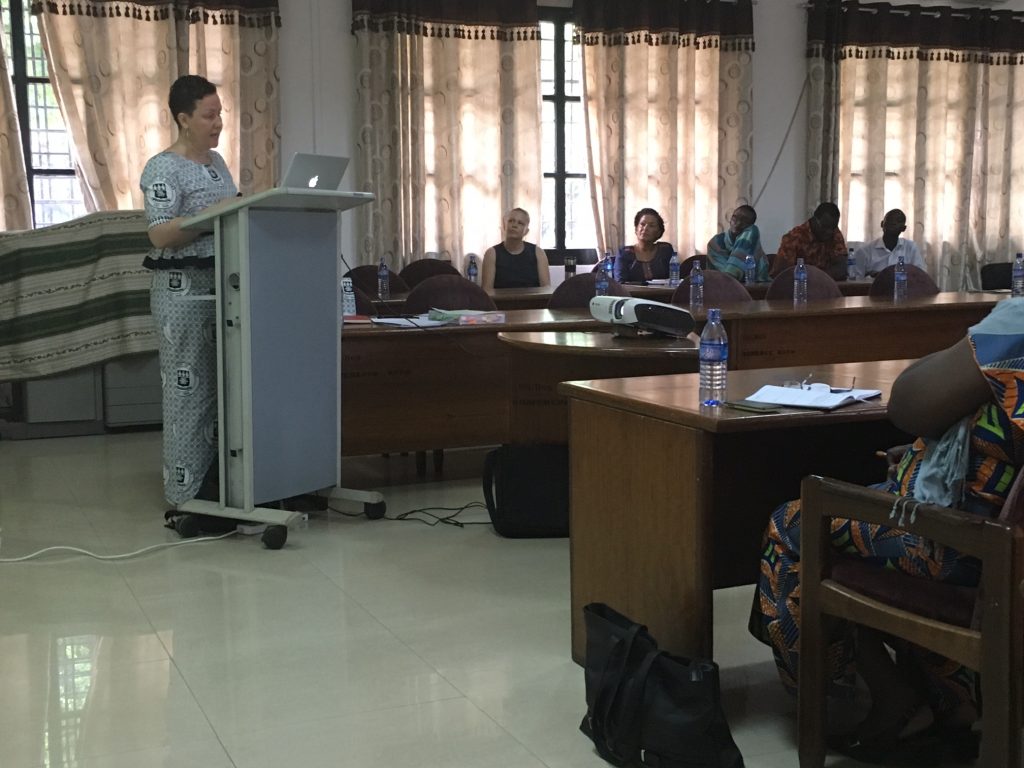
On Thursday 28th April in the morning, I did a 40 minute presentation of my dissertation “On a course to migrate? Migration aspirations among University Students in Ghana” and took questions for another 40 minutes or so. After a brief adjournment by the examiners, the verdict was in: I had passed.
Now there are some formal steps left, like making corrections in the final documents, and trying out a silly hat, but if they run smoothly, I am looking forward to graduation on July 23rd. This year!
The feeling at this point is one of great happiness and relief, pride and exhaustion. Happy to have completed well. On the day, I got into the presentation and just flowed, despite being nervous – almost cripplingly so – the weeks and days leading up to the presentation. ( I did a mock viva two weeks earlier that I think I did not do well in, so I’d say I know the difference between flow and just making it thru). On the day, the questioning part also went well, save a few stumbling answers to unexpected questions.
I am grateful for all the people that have been supporting me in this transformative journey over the last 5 years. I am proud of myself for making it over all the hurdles and trying tasks. I am exhausted and try to be kind to myself.
I did it.

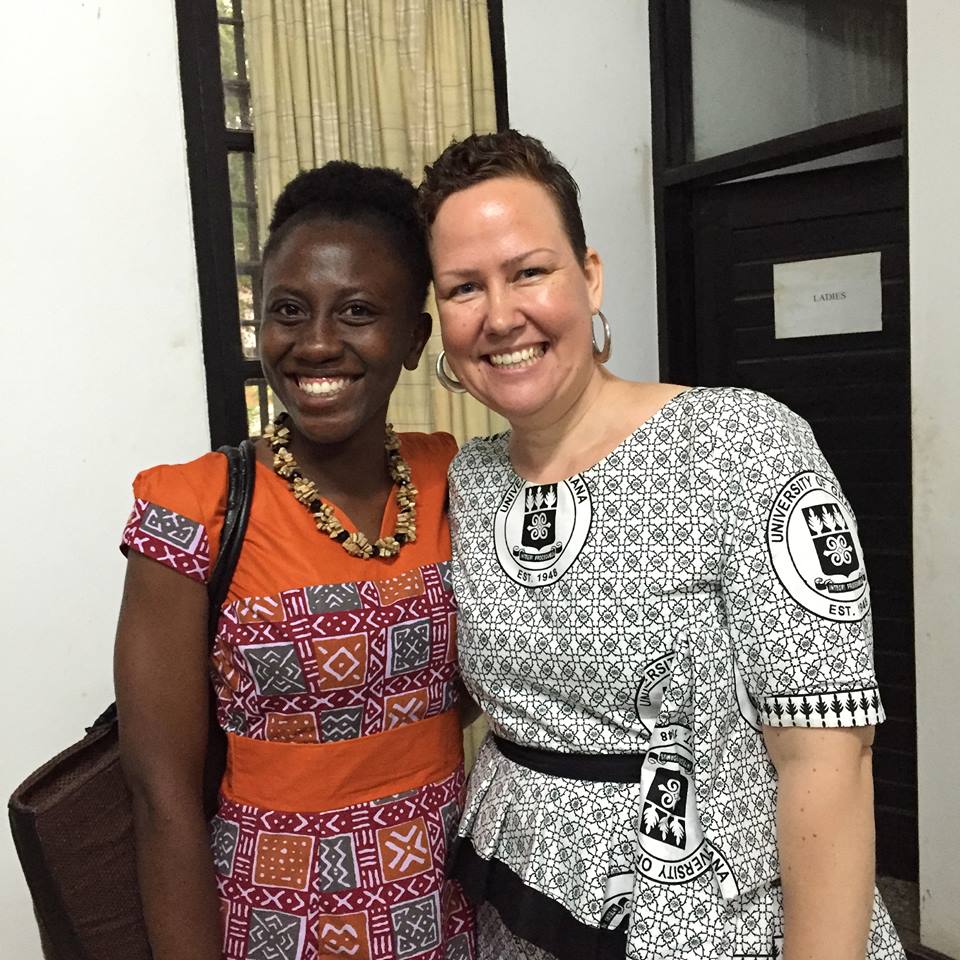
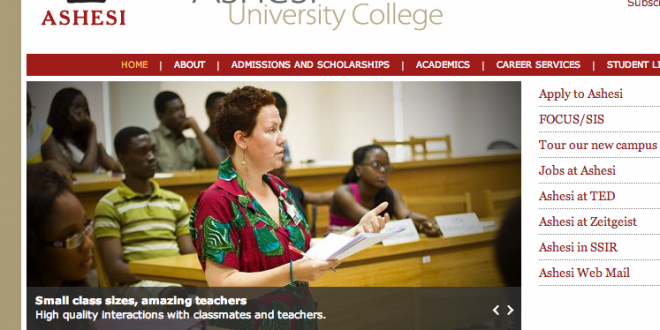
As soon as I have unpacked my bags, fall has started and I immediately have an interesting week ahead:
Wed – Kick-off at Ashesi (who right now feature a pic of me on the website to illustrate what we do, see above)
Thu – Election Petition verdict comes in, stay tuned to Ghana Decides Website and Facebook page
Fri – Start my last year as a PhD student (hopefully!) at Institute of African Studies, University of Ghana.
Sat – TEDxCapeCoastEd – a conference on “broadening the frontiers of education” and maybe Chale Wote festival pre-party in the evening…
And on Sunday, this being Ghana, I of course have some funerals to attend…
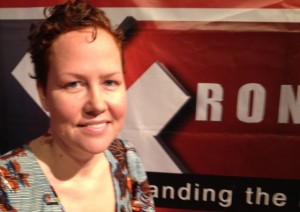 As I am writing this, I am seated in the busy newsroom of TV3, a news printer is scrieching in the back, assignments are given out “Kweku, take a camera and go to…” and stories about parties, school girls and social media are debated. This week, a new and exciting chapter in my professional life starts as a TV host of TV3’s new political program, Frontline 2012.
As I am writing this, I am seated in the busy newsroom of TV3, a news printer is scrieching in the back, assignments are given out “Kweku, take a camera and go to…” and stories about parties, school girls and social media are debated. This week, a new and exciting chapter in my professional life starts as a TV host of TV3’s new political program, Frontline 2012.
It is a one-on-one show with prominent personalities, predominantely politicians, in this year’s Ghanaian election. It airs every Friday at 8.30 pm and lasts for an hour, with breaks for commercials.
I decided to do this as I have been following the election closely through BloggingGhana’s flagship project GhanaDecides and see this as an opportunity to ask the questions Ghanaians care about to the people who can answer them and provide a steady focus on understanding the issues at hand.
Come Friday, I hope you will watch Frontline 2012!
This is what my day has been like today,but involving a vaccination appointment with my daughter instead of a squeaky chair and a salad lunch instead of whatever was in this brilliant little film. Now I need to go to get some stuff done. Really.
 My parental leave is over and I am back to work at Ashesi University College.
My parental leave is over and I am back to work at Ashesi University College.
This semester, I am teaching the freshman class Social Theory. It is an introductory course to political and societal philosophy and focuses on the question “how can we build a good society?” Really, I can’t believe it already will be the third time that I teach it! The news for this semester is that we are on Twitter. Follow us on @SocThe or follow this link twitter.com/socthe
This week is also Ashesi’s 10 year anniversary. On Monday, the anniversary was kicked off with a festive event for students, staff, faculty and executives of Ashesi along with invited guests such as the chiefs of the Akuapim area with the Berekusohene leading the group draped in the most beautiful and colorful kente.
The new campus – well for me it is new since I was away when Ashesi moved in in July – is purpose built and quite majestic as it is situated on one of the green Akuapim hills. Walking the broad, shaded walkways around the beautifully landscaped campus is definitely a motivating factor to strive for excellence!
So with drumming, smiling students and a campus in a festive mood – I was welcomed back to work!
Tomorrow I am lecturing on “Swedish Society and Culture” at Malmö University.
It is a topic I should know very well. I am a product of it. I studied Political Science with a focus on Scandinavia/comparative politics. In addition, it is a presentation that I have given earlier to students in Ghana (with good help from the Swedish Institute).
 But maybe what makes me most suited to talk on this topic is that I have lived outside of Sweden for a majority of the last 10 years of my life. I think experiencing other societies (US, France and Ghana in my case) makes the specificities of Swedish society stand out more clearly. Also, living abroad makes you – or at least it has made me – an ambassador of my country. I find myself describing the Swedish model (defending the high taxes), explaining why Swedes are thought – see pic – to be overtly sexual (a myth stemming from artsy Swedish films in the 1950s) and displaying Swedish traditions and joie-de-vivre (disproving that Swedes would be extremely suicidal because of the darkness up north).
But maybe what makes me most suited to talk on this topic is that I have lived outside of Sweden for a majority of the last 10 years of my life. I think experiencing other societies (US, France and Ghana in my case) makes the specificities of Swedish society stand out more clearly. Also, living abroad makes you – or at least it has made me – an ambassador of my country. I find myself describing the Swedish model (defending the high taxes), explaining why Swedes are thought – see pic – to be overtly sexual (a myth stemming from artsy Swedish films in the 1950s) and displaying Swedish traditions and joie-de-vivre (disproving that Swedes would be extremely suicidal because of the darkness up north).
Tomorrow I will do it again. Wish me luck!
PS. My blog being messed up means that I have not felt inspired to post lately. Sorry to anyone who still follows this space! I think I will just keep posting and worry about the look when I have time. Update: It is now fixed!
Picture borrowed from the Swedish Bikini Team.
On a day like this, I miss work. Today, Ashesi University College’s brand new campus in Berekuso, north of Accra, will be inaugurated and except for my name being there on the founders’ wall, I will not be there.
 However, from the information provided, many dignitaries will be. Except for Ashesi’s own president Patrick Awuah, Ghana’s vice president has been invited along with diplomats from around the world.
However, from the information provided, many dignitaries will be. Except for Ashesi’s own president Patrick Awuah, Ghana’s vice president has been invited along with diplomats from around the world.
 Although, I won’t be present when Ashesi opens up shop in our own facilities, I feel happy
Continue Reading
Although, I won’t be present when Ashesi opens up shop in our own facilities, I feel happy
Continue Reading
I had such a lovely time in Marseille, in the south of France!
Top left at a visit in a vineyard in  Cassis, a small town outside Marseille, a sign at the vineyard which translates to “a meal without wines is like a day without sunshine“…then the lovely local fish soup Bouillabaisse (not too different from a good light soup with fresh fish, I must say…read all about it in the Bouillabaisse charter here) and last but not least with friend since 10 years, Cris, who lives in Marseille and hosted me.
Cassis, a small town outside Marseille, a sign at the vineyard which translates to “a meal without wines is like a day without sunshine“…then the lovely local fish soup Bouillabaisse (not too different from a good light soup with fresh fish, I must say…read all about it in the Bouillabaisse charter here) and last but not least with friend since 10 years, Cris, who lives in Marseille and hosted me.
 The next collage is showing the time working – which was the lion share of my stay, I promise! Here you see Mary Gentile and symposium/workshop organizer Antony Bueno of Bentley University conversing, the Euromed Management campus, a workshop group session and a presentation by the hilarious Aaron Nurick.
The next collage is showing the time working – which was the lion share of my stay, I promise! Here you see Mary Gentile and symposium/workshop organizer Antony Bueno of Bentley University conversing, the Euromed Management campus, a workshop group session and a presentation by the hilarious Aaron Nurick.
I felt like this trip connected me to the wide world of teaching (Australia, Taiwan, Uganda, US), opened my eyes to new academic opportunities and at the same time reminded me of how small the world is…
…like this was not enough, French food was of course great, living in a nice hotel was amazing and getting to also see an old friend was a big plus…
…that is a pretty fabulous week, in my opinion!
My weekend, I announced on Twitter on Friday, would be dedicated to sleep, walks on the beach and good food.
It totally was! I slept a lot, walked on the beach BOTH Saturday and Sunday morning (this I believe is a southern Ghanaian luxury everybody that can get up at 6am on a weekend should give in to!) and ate well.
I also went to see Wanlov launch his Brown Card/African Gypsy album. Read Graham’s review here (excerpt below) which I found very insightful and on point!
Working with two Ghanaian musicians and accordion player Jérôme Pierre Soulas and violinist Filippo Bonini Baraldi from Paris, he combined elements of his own quirky Ghanaian style with their ‘gypsy music’. Wanlov’s rather androgynous image and performance style complimented the formality of the Paris musicians.
But did this merging of styles work?
It was Saturday and “everybody” was there. I even met Wanlov’s mother in the buzz afterwards!
This week it is Mid-Sem “break” aka grading all the way. It is going well, with one or two oxymora drifting by…
Have a good week!